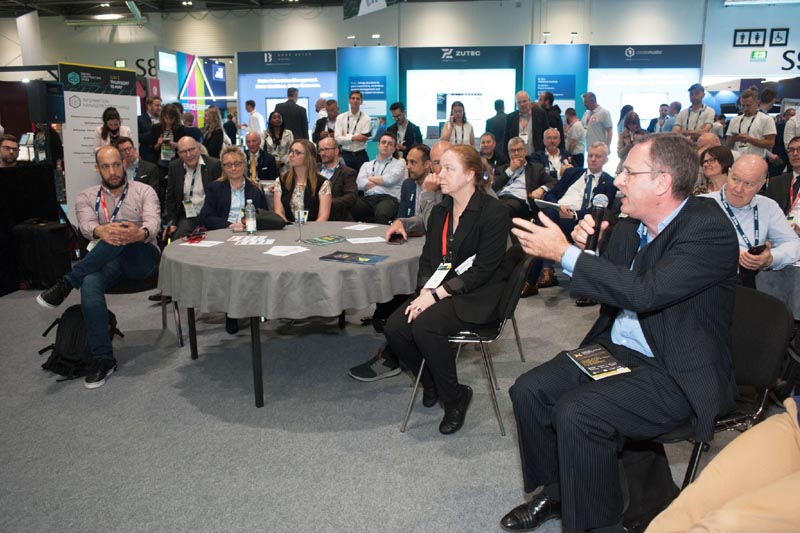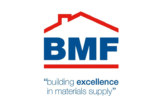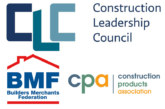
With a broader capability of improving efficiency, eliminating errors and also facilitating digital sales via the use of standardised data throughout the supply chain, ETIM UK continued to highlight its contribution to building safety during a panel discussion at Digital Construction Week 2022, held recently at London’s ExCel.
Described as the “tried and tested data standard for technical product data”, ETIM can trace its origins back to the Netherlands in the 1990s, the result of installers having “difficulty finding information to compare the performance of electrotechnical products”. The model they devised was soon recognised by wholesalers as having further value through simplifying the transfer of data within the supply chain, whilst the concept has subsequently developed beyond geographical borders and into other construction sector segments.
Arguably now the ‘best established’ standard — with data available for hundreds of thousands of products and used as an “international model for the standardisation and classification of technical product data” — the ETIM classification can help underpin improvements in efficiency, safety and environmental performance. Moreover, manufacturers are increasingly adopting ETIM to ensure that the information they provide about their products is “accurate, complete, consistent and traceable”.
In recent years, the concept has been adopted by the Builders Merchants Federation (for building materials, HVAC and plumbing products) and the Electrical Distributors’ Association (electrotechnical products) with ETIM UK established as a strategic alliance between the two. Working closely with manufacturers, merchants and distributors, much is now being done to raise the profile of the ETIM standard within the wider UK construction sector.
With a broader capability of improving efficiency, eliminating errors and also facilitating digital sales via the use of standardised data throughout the supply chain, ETIM UK continued to highlight its contribution to building safety during a panel discussion at Digital Construction Week 2022, held recently at London’s ExCel.

The panellists, representing both the building materials and electrotechnical sectors, convened to discuss ‘The Golden Thread: the role of merchants, distributors and wholesalers’ and called for a more joined-up approach to product data in general — possibly mandated by an overseeing commissioner — and its importance not only for building security but also for carbon reduction initiatives.
Chaired by Fergus Harradence, Deputy Director, Infrastructure and Construction at the Department for Business, Energy and Industrial Strategy, the panellists represented the breadth of the supply chain (manufacturer, merchant and contractor):
- Edgar Aponte, CEO, Rexel UK
- David Williams, VP Marketing UK and Ireland, Schneider Electric
- Phil Thompson, Procurement Data Manager, NG Bailey
- Rob Barbour, Data and Insights Director, Travis Perkins
- Margaret Fitzsimons, CEO, EDA
Commenting after the event, BMF CEO John Newcomb said “Today’s discussion highlights the huge significance that high quality product data has for every step of the supply chain — contractors simply cannot work without it. The Hackitt Report and the Code for Construction Product Information (CCPI) are creating a step-change for building security in the UK and ETIM has a vital contribution to make to that work because of its focus on a product’s technical performance.”
Panellist Margaret Fitzsimons, CEO at the EDA, added “ETIM is the standard of choice for the UK’s construction sector. Manufacturers are responsible for supplying consistent and high quality product data which can be transferred from one construction phase to another, and through the EDA the UK’s electrotechnical sector businesses are making significant progress. There is a need for a more joined-up approach to the UK’s product data challenge, including the adoption of a unique identifier to enable data from multiple sources to be amalgamated.”
Referring back to the specific panel debate topic, ETIM helps make the Golden Thread possible by “ensuring traceability and recognising that every point in the supply chain has a role to play” in minimising risk and ensuring safety is not compromised during both specification and installation.
Here, the interaction between merchants / wholesalers and their contractor or facilities management customers is a critical point in the construction process: the selection of relatively minor components — for which a buyer relies on information from the distributor — can have critical safety implications. As such, distributors need to understand their full responsibilities in relation to building safety and the Golden Thread, and adjust their business processes accordingly.
Similarly, manufacturers need to better support stockists by providing the required information on a product’s technical performance whilst ensuring it is “accurate, easily understandable, can be accessed by those who need it and is up to date”. As such, ETIM UK argues that, via the ETIM standard, the use of consistent and effective product data will allow the construction supply chain to make real progress in ensuring better building safety.
Click the links for more information on ETIM UK or to download its guide ‘How ETIM is making the golden thread a reality’.

ETIM: 8 facts at a glance
1: The ETIM standard is widely used in markets across the globe. The standard is led by the ETIM International organisation from its Benelux HQ, (www.etim-international.com) supported by a network of over 20 in-country local offices including in the UK.
2: The Electrical Distributors’ Association (EDA) and the Builders Merchants Federation (BMF) are lead organisations for the ETIM standard in the UK. The EDA leads on the electrotechnical sector; the BMF leads on the building materials, HVAC and plumbing sectors.
3: The ETIM classification describes a product’s technical and performance attributes.
4: ETIM is not a database or repository of data, but a structure. Organisations need systems in place to manage product data and to transfer it to others along the supply chain either through peer to peer exchange or using an industry data pool.
5: Once products are ETIM classified, its underlying structure means that it is automatically translated for use in other countries.
6: The ETIM classification removes inconsistency by providing a structured classification comprising pre-defined lists of features, attributes and values.
7: ETIM evolves through product specialist Working Groups, ensuring its structure keeps pace with product development.
8: ETIM covers the full spectrum of construction products including electrotechnical, HVAC & plumbing, general building, tools, hardware & site supplies.









